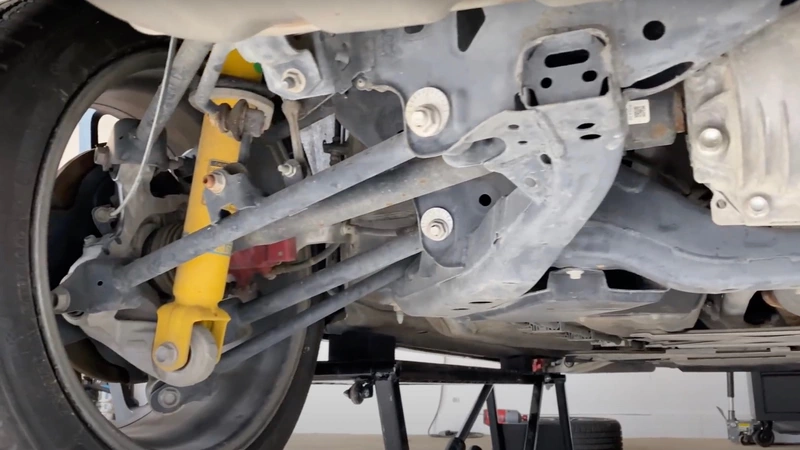It often doesn't make sense to modify a car's suspension.

Lifting, lowering, handling tuning, and other modifications to a car's suspension are extremely popular. However, Engineering Explained host Jason Fenske believes that modifying a car's suspension is often not worth it.
While some suspension modifications, such as those designed primarily to change ride height, are primarily aesthetic, this video focuses on modifications designed to improve handling. Suspension improves the ground contact between the tires and the road surface and improves grip. So it stands to reason that modifying the suspension would improve handling, right?
Fenske points to five potential methods, including modifications to spring rates, dampers, aerodynamic downforce utilization, alignment, and front-rear balance. The latter, Fenske notes, can be fine-tuned to produce neutral handling rather than understeer or oversteer.
While not having tested all of these factors himself (he is, after all, only one person), Fenske pointed to a recent tire rack test of four BMW 3 Series sedans with different suspension configurations: one with stock suspension, one with low-down springs (otherwise stock parts), one had upgraded springs, dampers, and sway bars, and one had coilover suspension with stock sway bars.
The results showed better subjective handling feel with the aftermarket suspension components, but the actual numbers did not show a significant difference, Fenske said. The suspension changes gave the driver better feel, but did not make the car faster in the slalom or on the track. In other words, there was no performance benefit, Fenske says.
Modifying the suspension just to change the feel of the car may be enough for some people, but Fenske believes that it is costly and should also bring measurable performance gains. The slight improvement that a modified suspension might bring, he argues, might be worthwhile for a racing car, but not for a road car. Would you agree?




